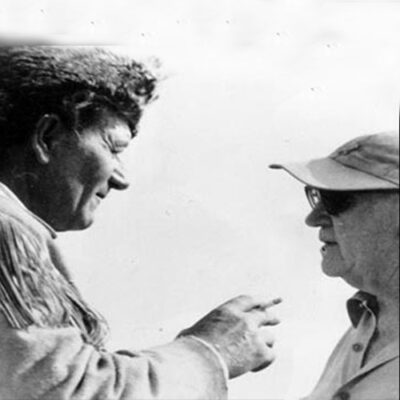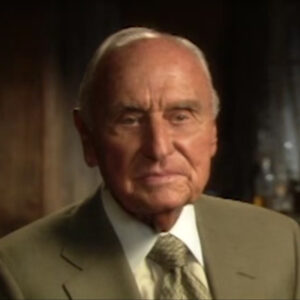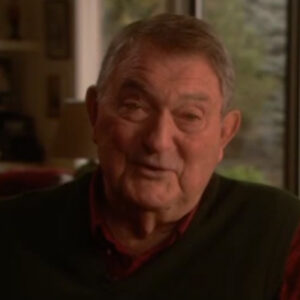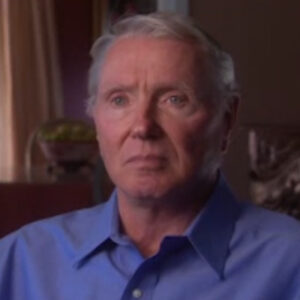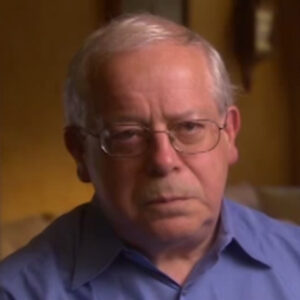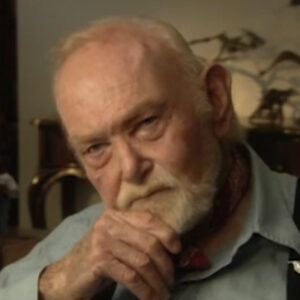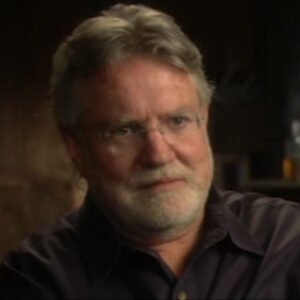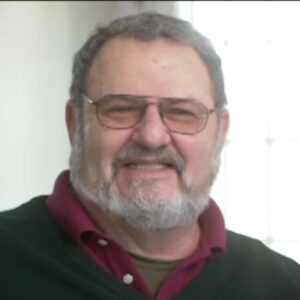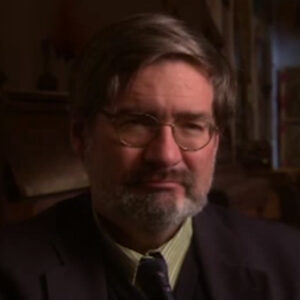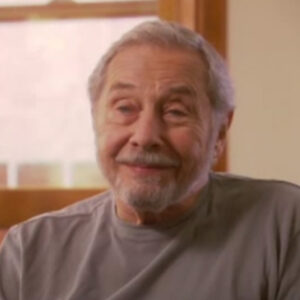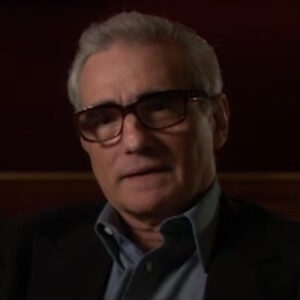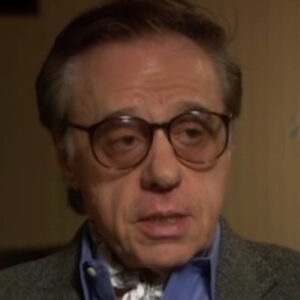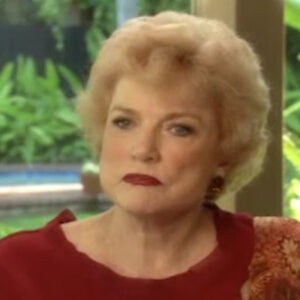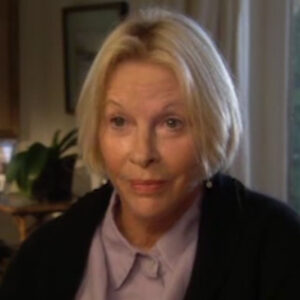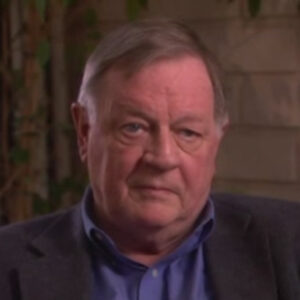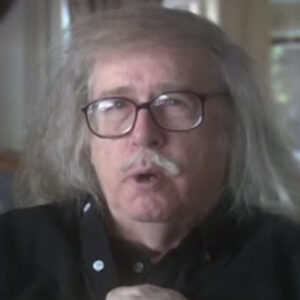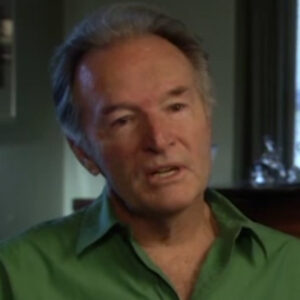Speaker That you auditioned for?
Speaker Well, I auditioned for John Edwards, the horse soldiers, because Martin Racan, who was the producer, saw me performing in New York at the St. Regis Hotel. I was singing and he came back after my show and said, I think you should meet John Ford. So they flew me to California and I walked into John Ford’s office not knowing what to expect, who I was really meeting. And if I had known, I think I would have been terribly nervous. But I at that point in my career, it was I was meeting a director, but I didn’t really know how great he was. And I walked in and sat down. The first thing he asked me was, are you Irish? Well, I told him, yes, I am Irish, that I was a first generation American. My father was born in Ireland and he smiled. And that seemed to please him. And I didn’t really understand why at the time. And then the fact that I had not really done any film seemed to intrigue him. And he wanted to have me tested for the for the picture. And so I went in with four other actresses and did a screen test. And I was the lucky one who got the part where your impressions of.
Speaker Well, he was very confident when I first met him, he was he was aloof and yet very intense if those two can go together and not overwhelming. I didn’t feel that I was in this awesome presence.
Speaker And he made it really very simple, very easy. And he was very, very nice.
Speaker He has a reputation for.
Speaker That’s how he had the reputation of being very fond of his before Ford was was wonderful to work for and he did have a great appreciation for women and he liked women and he tried in every way that he could to help you.
Speaker He had a great sense of humor, which people don’t seem to realize about him. There were times when he would be riding his horse. I was coming in one direction and he was speeding off and another and he was going to what they call the honey wagon. He had to go to the bathroom. And when he came out, he got back on his horse and he looked at me and he said that was a terrible experience. And I said, Why Mr. Ford? He said, well, I had my underwear on backward and he rode off. So he had this crazy kind of sense of humor. He could be very difficult to work with at times. It depended on his mood. And one time I recall that he upset me.
Speaker So because I had an emotional scene with John Wayne and we were standing on a riverbank and it was the first there was an explosion and it made me fall into his arms and fear and so on.
Speaker It was an awakening moment emotionally and also a rather tearful moment, the way the scene was written.
Speaker And so that morning, I hadn’t I had enjoyed before this a lovely, friendly, funny relationship with Mr. Ford or with Papis. I grew to call him, and that morning he wouldn’t speak to me. And I walked in and I thought, what did I do wrong? And he absolutely refused to acknowledge that I was even there. And it broke my heart. I thought, what have I done wrong? What what is it? Well, it made me emotional. And I went into the same feeling, not quite myself. And as the scene continued, I found myself in tears very easily. When the scene was over, the camera’s action had been stopped and the cameras cut. And he looked at me and he lifted the patch. Anxiety winked at me like that. And then I realized I’d been had he had set that up to get me to be upset so that he could get the right emotion out of me. And I told him later, I said that was very tricky, what you did, but you don’t trust me as an actress to give you what you want. And then after that, then we kind of worked that through, but.
Speaker Well, as you know, stories have been treated John Wayne the same way a stagecoach as we understood that he was doing the same thing to make them feel comfortable making it into the hands of a character.
Speaker And so for you, working on the horse soldiers now for the way they’ve been working together for many years and. What was it like to be amongst John Ford, John Wayne, William Holden, what was it like for you to be on the set of the horse soldiers with John Wayne and John Ford?
Speaker William Holden? I had to pinch myself every day. I was born in a little town called Whitefish, Montana. And as I said, of Irish immigrant parents who had worked very hard to get as far as they had and just suddenly found myself playing a Southern belle in a movie opposite these enormous stars. I had to pinch myself and I kind of said to myself every now and then, it’s a long way from Whitefish, Montana. But it was it was an awesome experience and it continued to be in my relationship with all of them as I matured and realized how important they were and how great they were. It was it was it was one of those moments that you hope for in a career and sometimes it doesn’t happen.
Speaker And working with John Wayne, I mean, what was it like as an actor to work with this actor, with the stature and reputation?
Speaker And by that time I was like, well, to work with John Wayne was very special because Duke Wayne was in person. Exactly the person he was on the screen. He was as big and as wonderful and as warm and as generous and as as really considerate and compassionate as you could possibly imagine. We would come off the set in Natchitoches, Louisiana, where we shot the horse soldiers and it was cold and we were in the mud and we were in the swamps. And we were I was riding sidesaddle all day long and we would come back at five o’clock. We were really tired and there would always be a group outside our motel of young people, older people, and they all wanted to see John Wayne. And the young people had questions for him and he always had time for them, no matter how tired he was, how caked with mud he was, how hungry he would always stop. And if a young person I heard a boy ask him about his parents, he said, my parents are are difficult with me. And he said, I want to take the car on Saturday night. My dad won’t let me take the car and do queen stop for a minute.
Speaker And he looked at the boy and he said, Well, when is the last time you offered to wash your dad’s car? And the boy said, Well, I have at least a moment to try that.
Speaker And then he walked in, he stopped and turned and he said, I have something else to ask you. When’s the last time you asked your dad? When’s the last time you told your dad you love him? And this boy really just stood there and kind of looked down and said, I guess I have it. And he said, well, I think you ought to go home and try that, too. So he always had it was never he was never so important that he didn’t have time for everybody. So he was very special.
Speaker This is also the legendary story. We fought for three different reasons, you know, he was a captain and when was it what was the relationship like between for the future or the relationship between John Wayne and John Ford?
Speaker Was the coach and the player? I mean, it was like and he called him coach John Wayne would say, coach, what do you think? And Pappy Ford told him to do something. He did it, and he would do it in his own way. I mean, he certainly was not not a puppet to John Ford, but Deucalion really had overwhelming respect for him. And whatever Pappy told him to do, he had complete trust.
Speaker And there were times when, you know, they would play practical jokes on on John Wayne. They played practical jokes on me.
Speaker And one of the jokes that I remember that they did on me to to wake me up, I had been knocked out. I hit John Wayne. I saw him, and then I got knocked down and I was knocked out. And so to bring me to he and he and Bill Holden were going to throw a bucket of water in my face. So they went off to get the bucket of water and we talked about it. We rehearsed a little bit of it. And so when they were shooting the scene, I didn’t know what they were going to do. They went and got a bucket of ice water and they put ice in it. Well, it woke me up and again, he got the reaction he wanted in the scene, but they laughed. They thought that was great fun. So there were always practical jokes going on, but tremendous respect also for Pappy Ford at all times by everyone.
Speaker I was told usually also for the weekend so that it would be very difficult for me to interact with someone who wasn’t called for.
Speaker Well, Pappy Ford treated Bill Holden like he was part of the part of the family. He he refused to allow them. John Wayne and Bill Holden were staying in Shreveport at night, not staying where we were staying. The rest of the company in Natchitoches. And Pappy Ford was concerned that they would start partying a little bit in Shreveport and come to the set the next day and there might be problems. And that only happened once that they they went in. And Duckhorn said he was going to go to the dentist, that he had to have dental work done. Well, everybody kind of knew that that was because they just had so much pressure. They wanted to go in and have fun in Shreveport. And when they came back the next morning, Pappy Ford made all of the stuntmen line up. And when the car drove in with Bill Holden and John Wayne in it, they got out and Pappy Ford said, OK, you have to blow your breath and say good morning on every one of these men. So everyone it was poor stuntman was standing there and they would go up and say hello and they would go sober, sir. And each one of the guys down the line would report that they were perfectly all right. Reporting, reporting for work. So but William Holden was was a wonderful actor. He had great pride. He was far more private. He would not meet with fans after after shooting, he went off to his own hotel and he felt that his responsibility to the public was to produce a good show and to perform well. But he he was very private.
Speaker So we know that was pretty well for, you know, for severe accidents for the driver so that you have the opportunity to see Mr. Ford.
Speaker John Ford certainly never drank that. I know. While he was working, when he wasn’t working, when he was between pictures. I know he certainly could have a good time. And I had a house that he would come to every afternoon and sit. And he loved my son, who was my first child and my and he was named after him. And Pappy Ford is his God is godfather. And his name was Michael Ford. McGrath Ford being for Pappy Ford. And Mrs. Ford called me one day and she said, Are you giving Papi a drink when he visits? And I said, absolutely not. I would never do that. She said, I can’t understand it. He’s he’s drinking. And then I realized what it was. He was coming in my back door up the back steps, and there was a beer on tap at the back door. So he was just having a beer on tap when he came in.
Speaker And by the time he got in where I was, I didn’t know what he was doing. So in a way, I was responsible for that. But never did I see him ever compromise his work with alcohol ever.
Speaker One of the one of one of the big scenes where there’s a lot of it, because this is a really fascinating scene as all of the young boys were built that supposedly came about, you know, it was originally in the script.
Speaker I don’t know that it wasn’t in the script. I don’t think anything was ever spontaneous with John Ford. I think I think Pappy Ford had everything so beautifully planned. And he may not have had it in the script, but I’ll bet he had it in his mind that where that school was and he knew what he wanted to do with that because he planned everything. It was like Hitchcock. He knew exactly what he was when he was shooting. But that was a tremendously emotional scene in the picture when you saw these little babies marching off to meet the enemy. And there was that wonderful scene when I finally reached after her son, who was the little drummer boy, the little plump little boy who was going out and she didn’t want him to go in. When you watch the movie, you didn’t want him to go either.
Speaker So typical, Ford said, like, you know, we’ve heard people say maybe we play the accordion for the ritual of music being played.
Speaker We started today shooting in the afternoon to put those things out on the fourth set when you work.
Speaker Everything happened on the Ford said you’d walk in in the morning and Danny Brzeski would be playing his accordion. The mood was set. The fires were built. You know, you’d have the smell of smoke. You were doing a civil war film. And you really when you walked on the set, you felt like you were in the Civil War. And it was wonderful because he created an atmosphere in which to work. And if you had a tearful scene, which I had a few of them, he even sent me at one point over to sit on a bench away from everybody. Danny Brzeski came and played all of the songs that were sentimental that would help me get into the mood and get into the into the emotional side of the scene. And it was wonderful. And then at four o’clock in the afternoon, work stopped and t reserve and the cookies came out and the cakes and the wonderful silver service and they serve the tea and beautiful cups. And I asked Pappy one day I said, Do you have another reason for having tea? Other than that, a lot of fun and it’s wonderful. He said, absolutely. It raises everyone’s energy and you get another hour and a half, two hours of really good work out of them. So it was a wonderful, wonderful, genteel touch to working out on a on a rough location.
Speaker So there’s a journalist.
Speaker Oh, absolutely.
Speaker He was so sentimental and he was the best godfather in the world and both of my children. And when my son was was baptized in New York, Pappy Ford flew there and he had to see an Irish prayer over and before that child was considered christened properly. And he was always, always called, always wrote. He was a very attentive godfather.
Speaker How was it? How was it when he was directing you and I’ll be a Gibson and it seems.
Speaker Althea Gibson was was wonderful. I just loved her and we had a great friendship until she died also, Pappy was very sensitive without me and Olivia couldn’t go to location with us because we shot the horse soldiers in 1959. And unfortunately, because she was black, she couldn’t go to the south. And that was my first experience with that.
Speaker And it was horrifying to me that she couldn’t come with us and stay in the motel right with us. And she was wonderful about it. She had such a great attitude and a great understanding. So all of her scenes were shot in here in Los Angeles. And Pappy Ford loved her and they had a wonderful friendship and a great relationship. They were good friends. And she treated her with such great respect. She was wonderful and she really wasn’t an actress. So she needed special care during the scenes and he gave her everything she needed.
Speaker I thought it was a very tragic accident on that set with you, Fred, can you tell us about the.
Speaker The last day of the shooting of the horse soldiers on location, Pappe also loved his stuntmen and they were really the pillars of his company.
Speaker He endured the stuntmen and he tried to plan their biggest days of stunts for the end of locations so they would take the money home and not spend it on a Saturday night having fun because they all had families. And so he had planned most of the major stunt work to be done on the last two days of our shoot. And Fred Kennedy, who was a stuntman who was assigned to me because once they started shooting, they were into shooting about five days. And then you become an insurance risk because you if you’re riding a horse sidesaddle and out in the in the swamps and things, you need stuntmen close to you just in case something unexpected happened. So Freddy Kennedy and Slim Hightower were the two men who always worked with me. So we became very good friends and they were characters and they loved to play practical jokes on me. And my bed was short sheeted and I had everything happen that could possibly happen. And so the last day of the film, the last shot of the film, John Wayne came to me and he said, look, we want to play a trick on Freddy Kennedy. And he said, Freddy is going to do a simple shoulder fall off the horse by the bonfire. And it was when the guys were coming in and they were shooting at them and then they’d fall if they were supposed to be hit by a bullet.
Speaker And so he said, we want you to do is when he falls, we’re not going to yell cut.
Speaker And so he’s going to think the action is still going and he won’t break even more open and eye until they yell cut until Pepes is cut. So he said, we want you to do is after all these tricks and things he’s done on you, we want you to run in. And he said you kiss him on the cheek and we’ll get it on film and he’s going to blush and everybody will applaud. And it’ll be a joke on Friday for the last scene.
Speaker So I was standing behind the camera and Freddy rode his horse in and he did the simple fall of his horse. The shoulder fell into the fire and I ran in. And when I picked him up, it was. Gosh, the only way you can explain it was like picking up a thousand breaking bones. He broke his neck and they and I looked up and said he’s dying. And they rushed in, picked him up and put him in the back of a truck. And I rode in the front seat all the way to the hospital. But he did not make it to the hospital. And then I went with him to the funeral home and just stayed with him because he was he was such a special friend. And I still to this day, I’ll never forget how horrifying that day was and sad it was. And Johnny Veatch, who has since has also since died. Johnny was wonderful that day. And he came and took over my my place at the funeral home so I could go back to the hotel. And when I got back to the hotel, to the motel, Pappy Ford was waiting for me and he said, Now what we want you to do is he said, if you’re upset, we’d like to put you to bed. And he said, I’ve called your parents.
Speaker I’ve talked to your mother and father because it’ll probably be in the newspaper on the news. They know you’re all right. And he had done that. He had called my parents and talked to them. And I said, absolutely not. I you know, what are you going to do? And he said, well, what we’re doing is gathering money and toys. And, you know, on location, people play with hula hoops and all kinds of silly things. So we had a lot of stuff that we weren’t going to take back with us.
Speaker And he said, we’re going to gather all of that together and we’re going to go visit this wonderful little family who had worked with us. And we had already raised enough money to buy a bill for the steeple of their little church that they had. And Pompidou was one of the little boys that I had played with so much. And so we did. We gathered all of these things. We went to the store, we bought staples. We bought flour and sugar and lard and peanut butter and all kinds of food. And we took it over to their house. And Little Papa Do was turning cartwheels in the front lawn.
Speaker And we dealt with our grief in that way, rather than than sitting back at the motel and wondering what to do. We went out and tried to do something constructive and that was Papis idea and it was a wonderful way to handle it. And then we accompanied we had a rosary that night and then we accompanied his body back to Los Angeles. And then en masse, we all went to meet with Freddie’s widow and family. And again, that was all John Ford. I mean, he loved those men so much. And for him to lose Freddy, he took all of the guilt, all of the pain of that on his own shoulders. So it was it was a tough way to end the location.
Speaker Some people have said after that particular four became gun shy about sponsors films.
Speaker Well, I don’t know how gunshy Pappe became after that about his stuntman because he was always so careful with them anyway. I mean, stuntmen are so incredible the way they plan their stunts and they execute them so carefully and they all take care of one another. But I did his next film, which was Sergeant Rutledge, and we were in Monument Valley and we had Canute telling us last night the father had been the famous stuntman. And so we had his son working on on this film.
Speaker And he was he was very careful with them. But I didn’t see him being overly overly careful or gunshy with them.
Speaker So what was that experience like now you had you were following in the Ford stock company and now you want to your second film, sars-cov-2, which Jeffrey Hunter was also a Ford stop company. Lost a lot of people here for doing a piece about the Buffalo Soldiers, what is true is that experience was different about that from the soldiers.
Speaker What was different about Sergeant Rutledge over her soldiers?
Speaker I think it’s because Sergeant Rutledge or the Buffalo Soldiers was a story that Pappy Ford really wanted to tell. That was a story that he’d had for many years that he felt deeply about. And the Buffalo Soldiers were our most courageous, the bravest cavalry men that we had that we had in United States history. They were men who had had gone through the civil war and made it through the civil war and were absorbed into this cavalry unit. And they performed the bravest deeds. And he wanted to tell that story and he had wonderful people there. Rafer Johnson, as you said, Woody Strode, Woody was the best person in the world. Pappy again did a happy Ford and Woody Strode. He took Woody and his wife Luana into his house in Bel Air. They lived over the garage while we were shooting the picture and the day that Woody had his biggest scene in the courtroom where he had to really break down.
Speaker He.
Speaker First off, what if we could turn that off scenario so much larger, which is what he had to hide the bushes and you see him, he said, don’t scream, they’ll scream.
Speaker That’s right.
Speaker Well, the difference between Sergeant Rutledge and the horse soldiers, I think, for Pappy Ford was that Sergeant Rutledge of the Buffalo Soldiers was a story that he had had for many years that he really wanted to tell.
Speaker And the Buffalo Soldiers were black men who had come through the civil war and had been absorbed into the cavalry, into this cavalry unit. And their deeds were the most courageous in the history of the cavalry. And he wanted to tell that story. And we had wonderful people. Rafer Johnson, wonderful. A lot of the football players from UCLA. And then we had, of course, the great and wonderful Woody Strode, who was just so unique. And to himself and Pappy Ford, he played a trick on Woody Strode to just like he had on John Wayne and on me. And it was Woody’s most emotional scene in Sergeant Rutledge in the courtroom when he had to break down and cry. And so Pappy started working on him a couple of days before and he actually created an argument. He had already talked to Luana Woodies wife. But what he didn’t know this and they had conspired on this. But Luana and Woody had such a terrible fight that Lunana threatened to leave him and she packed up and left. Well, the day that was the night before he reported for this big moment, well, he wished he hadn’t slept all night. He was an emotional wreck. He walked in to perform this scene and he fell apart.
Speaker And it was absolutely wonderful on film. But when Woody found out what Pappy had done to him, he wanted to kill him because and then, of course, the winner came back and he realized that there really wasn’t a problem.
Speaker But I mean, he went through 24 hours of sheer hell created by John Ford to create this extra something in the scene that would make it really work. So he was a kind of a bad boy in that way that he played with our emotions in our life. But we all loved him and we all said, you know, he may be trouble, but he’s our trouble.
Speaker He was always I was I was upset with him. John Wayne was upset with him at times when he would catch him playing tricks on him. And there’s a famous story about the long gray line with Tyrone Power and Ward Bond. And they had to have this big fight at the at the West Point Academy. And the night before, the prop man was told by John Ford, the two men were going to have this battle in mud. And the prop man was told the night before, you go out and get horse manure and I want you to fill in this area where they’re going to have their fight. And he had also gone to Tyrone Power and said, you know, war bonds and whatever about you and Ron Power was upset about that. And then he went to word bond and said, you know, Topower said, you can’t act or whatever it was. And so the two men were ready to fight on that morning. So he had them both primed. Then when they started to fight and they fell into what they realized, then stepped into what they were fighting, and then they were mad, but they were mad at Ford.
Speaker And so he got again, he got a great scene, but they came out furious with him. But it was part of his fun. It was, you know, the Irish nature that he loved to create a problem. He just he couldn’t leave well enough alone.
Speaker Tells the story to you.
Speaker Well, he really didn’t. You know, Jeffrey and I got along, Hank and I got along beautifully. And if he was trying to do anything to make us not get along, it never happened. But I did how he did do something to me. I had a beautiful young UCLA football player in one of the scenes where he was shot and supposedly dying. And I had to pick him up in my head, in my arms and put water on his face and love him and take care of him as he died. And I didn’t know for years after that till I met this young man at a social gathering. And he said, you know, it’s too bad that you really didn’t like us. And I said, What do you mean I didn’t like you? And he said, Well, Mr. Ford told us that you really didn’t like working with all of us and that it was, you know, you were a good actress because you were pulling it off.
Speaker And I thought he didn’t. He did it to me, too, right there. And I had lived years not knowing that he did it to me, but he created the right thing. I was giving this boy all of this attention and loving. And the boy was supposed to be a little taken aback by me, a white girl holding him at that time in history and all that. And so he got exactly what he wanted from this young man and. Also from me, because the boy wasn’t giving me what I felt, I should have said, I was working harder, but I didn’t know about that. And two years later, well, then I told this young man and we both started to laugh about it and we realized how we both had been duped by John for it for so so it seemed that we were talking about all sorts of rubbish, that even though there was a history buff, a real strong history buff, did he seem to have been more intimately connected to some extent to the soldiers?
Speaker I think I believe this is all in my own opinion, I believe that John Ford was more emotionally bonded to Sergeant Rutledge than he was to the horse soldiers, the horse soldiers he loved. He wanted to tell that story and he loved anything he did with John Wayne. And so he enjoyed working on that. But I really sensed that in Sergeant Rutledge, he had a personal a really a personal story there that he wanted to tell that he felt was important for history and that he wanted to make sure that that was on film is for forced to do so.
Speaker Mm hmm.
Speaker Oh, he was he was courageous in his own way. John Ford told the stories the way he wanted to tell them. And he was an absolute poet with a camera.
Speaker And I heard him say many times near the days of his death, when new forms of television camera work can come in and zoom lens and all of those things. And he said, you don’t need that. And he would tell young directors Peter Bogdanovich, I think says that that he was told by John Ford, you know, why do you have to use a zoom lens? And if you look at John Ford’s pictures, you’ll see a stationary camera and the action happens in front of the camera.
Speaker The camera’s not going around and doing all of these wild things. He has the action taking place for the camera and any one of his films. You can stop at any frame and take it and you could frame it. And you’d have a lovely, balanced, beautiful picture because he really had had the eye for the camera to relate and tell a story.
Speaker It was the last time you saw the last time I saw Pappe Ford again is a typical Pappe Ford story. I was living in New York and he was going to be decorated by the Navy. He was being given a special medal. And he called me and he said, I’m sorry.
Speaker Can I just interrupt you to let this plane go by? Sorry.
Speaker The last time I saw her before and again, it was a real Patty for the story, I was living in New York and he called me and he wanted me to come to his house in the desert because he was going to be awarded a very special medal by the United States Navy. And he was, you know, a two star, one star, two star retired admiral in the Navy. And in fact, he was the first I’m sure somebody else has talked about this. But there he was, the first one to figure out how to put a colored film in the gun. And they in in the gun, on the guns, in the wings of planes so that they got their first colored actual shots of actual shots in the war.
Speaker But anyway, he was being given a special award and he wanted me to come to California to be there and to witness it. So I said, OK, so my son, I was on a Friday, it was a hurricane in New York. My son had the pet mouse, the family mouse at school and she was pregnant. And I had to go and get the mouse with him and walk through a hurricane to get back to my apartment in New York to leave my children with their housekeeper and nanny and raced to the airport to get to California to be there on Saturday morning for this award ceremony. Well, I jumped in the cab having gotten Mrs. Pregnant now, so I’m OK. And the hurricane jumped in the cab, went to the airport to see my airplane just pulling away from the gate. I just missed the plane. So I had to call Papi and tell him I’d miss the plane. But that was not well received. So I went home. And the next morning I got on the earliest flight that I could get on, flew into Palm Springs. And Barbara Ford, his daughter, met me on the plane and she said, oh, it’s too bad you had to miss the the ceremony this morning because he’s not happy about that. I said I couldn’t do anything about it, so I got to the house now. I’ve been up all night and everything. I was tired, flown out there, got to the house and the butler at the door and let me at the door. And he said, Well, would you sit over here, please? I said, OK. And he said, it may be an hour or so before you can see. And I said, why? He said, Well, he’s watching the baseball game. And it was the series I think was on. And he said he doesn’t want to be disturbed until the series is over. And I thought he’s doing it. He’s punishing me because I didn’t get here for the awards ceremony. So when I finally walked in, he was rather cool with me. And then he, you know, warmed up and we talked. But he was in bed and was very ill.
Speaker And but a lot of a lot of the time that I spent with John Ford, he wasn’t he was in bed. He would homecourt you would go in after filming and he’d be sitting in bed and everybody would sit around his back and talk to him. Or if I went to the house, he would be in bed and you’d go up to the bedroom and sit with Mrs. Ford and Pabey and talk to him. But he he he was very Irish in that way. He loved his bed. But that was the last time I saw him.
Speaker And he was very weak, very thin. And he was he was very sick. But he was always interested in his godchildren, always interested in what I was doing and really a very, very special friend.
Speaker Stay in touch. John John Wayne remained and so did William Holden.
Speaker I knew both of them well over the years, long after we had made the horse soldiers. And Duke was was a wonderful friend. Whenever whenever I saw him, it was as though he was the kind of friend that you can pick up with if you hadn’t seen him for a year. It was as though you sign just yesterday, and I saw him very shortly before he died.
Speaker And I loved him dearly, too.
Speaker He was he was just as I said, he was bigger than life and a bigger than life friend.
Speaker What was it about those Hollywood productions? You know, of this started for the old Hollywood production, and what was it about being in that period in Hollywood productions like the soldiers or Soldiers, which would be on location?
Speaker Was that experience like was the experience of being and I’m so grateful that the experience I had in film, major work I did in film was during the era of the 60s and a little bit in the 70s, there was a sense of control. There was a sense that somebody was really in charge.
Speaker And in this case, it was John Ford and you felt that you were in the presence of greatness. There was a there was a sense of something bigger than life happening. And you were treated in a very special way. You were catered to. There was somebody there constantly taking care of you, whether it was not only hair and makeup, but it was making sure that you had the water that you wanted and you had the food you wanted. And I know that that does happen today, but it doesn’t happen, not like it did when I was a very, very special time, a very special period to be working in film.
Speaker And you went to locations, locations that were exciting and maybe if you’re going to jog on a James Bond film, you’re going lots of wonderful locations, too.
Speaker But then you would go like to Monument Valley, which was fabulous. And you worked with the Indians. And you, John Ford, had the Navajos there and they you know, they were dressing their hair in the mornings and you would go and visit with them on on their reservation. You were allowed to come and you were steeped in the history of what you were creating, which was wonderful, was very different relationship. Like the Navajos love John Ford, who gave them work whenever they went. And he shot a lot of films in Monument Valley. And they always knew when John Ford was coming that that meant work for them. And indeed, he managed to not that they spoke a different language, but he spoke their language so that they understood him and they understood that he had great respect for them. And what they were creating was that he helped them to understand what it was that they were doing. So they loved working for him.
Speaker And he used a lot of fun in that respect.
Speaker To give us a physical description of Mr. Ford or to give a physical description of Pappe Ford, well.
Speaker He was he he had a very distinct style. His pants were pleated and khaki pants, but not tight anyway, but they had a very interesting fall to them. And everything about him, I always felt was was calculated that he knew exactly how he wanted to look. And he always wore a silk shirt open at the neck. And it very often would have a cigar burn hole in the silk shirt, but it was a silk shirt. And then he very often wore a boning, which is an Irish weave, for they use the the pure lamb’s wool and they they weave this this beautiful fabric. It’s a very natural looking fabric. And he had a jacket made of that which was lighter in color, and that’s what he would wear. And he always had his pipe. And from the time I knew him, he had a patch on his eye on one eye. And when he was working and concentrating, it was fascinating to me. He would have a handkerchief, a very long handkerchief. And the way, you know, something, a little kid sucking thumbs or some people chewing a pipe or do something when they’re when they’re really thinking hard about something or creating, he would chew on this handkerchief and he would sit for the longest time and chew on that hanky. And I think you would be working with his hand and in his mouth. And that’s the one image I have of Pappy for it. And he also had a slouch head that was a very Irish looking felt slouch hat that he wore.
Speaker And most pictures that you see of him, you’ll find even portraits that were done with him at Studios’, that he’ll have that open silk shirt and this lovely, beautiful jacket and then the Katharine Hepburn kind of pants and.
Speaker And it was a very it was a wonderful, casual but calculated, tailored look, if you can be casual and tailored at the same time, it was a it was wonderful and it had a almost a character like style to it.
Speaker If I had to ask you, the one memory that you that you still hold on to work with John Ford will would be.
Speaker I think the memory I would have working with John Ford would be his eyes looking at me before a scene, giving me all the confidence in the world to be wonderful and making me feel that he thought I was going to be wonderful and then afterward getting his approval, just very special, special, special communication that he would give to his actor. That was so wonderful. And he had a sweet, special way of loving you. And if he loved you, he loved you with his whole heart, even though I played tricks on you and he was difficult at times, he loved you and you knew he loved you.
Speaker And it was probably the most special friendship that I could ever experience in my life when I was in a dark room. What was he like?
Speaker Well, when John Ford was in a dark mood, he didn’t communicate. He would be very moody. He would be very dark. And you knew and everybody else knew. Get out of his way. Just stay out of line. He didn’t want the laser to fall on you because the laser would distract. So if you just stayed away from him, then that would change. And then whatever it was that he was brooding about or upset about would change and then he’d be back to himself. But he did have a very dark side, but in that dark side he created. But he didn’t create when he was being happy and joyous, but it was when he would retire within himself and then these wonderful things would happen.
Speaker Well, I think I think it was in a very emotional scene I had in the horse soldiers. And I had several moments with him in Sergeant Rutledge, also between the horse soldiers, where the part that Althea Gibson played, she was shot and killed. And I had lost her and I was despondent about that. And it had me in a sort of a stable. And I was there with a horse and then a couple of the stuntmen, the characters that they were playing, they were with me and I was given a mirror and to look at myself and I had been on this ride with these soldiers and on this horse and in the swamps and covered with mud and thrown in the river and all of these things. And then to lose the one person who was so close to me as she was.
Speaker And it was a very tearful scene. And in that scene, Pepe gave me all of that quiet. Dark side of him when he was feeding me everything that he had emotionally, but he was staying back and in the shadows from me so that he would allow me to create what I had to create in that moment. And then when it was over, that wonderful look of of it was great. It was what I wanted. But it was it usually didn’t say anything, it was in his eyes, he didn’t have to say anything. He didn’t come up to you and say terrific, he would just sit there and look at you. And you knew when you looked at him if he was pleased and if you had satisfied what it was that he was looking for you.
Speaker Please, if you had the confidence in John Ford, if that look wasn’t there, you know, he was going to ask you to do it again.
Speaker And he wouldn’t let you go until he got it the way he wanted it.
Speaker And there were very few scenes shot over, however, he usually created it from the night before when he had his wife walk out on him and had Woody in that.
Speaker So and it supposedly happened to, oh, gosh, they won an Academy Award for it in the informer, Victor McGlocklin for Victor McGlothlin to see.
Speaker And he wasn’t supposed to drink.
Speaker And I understand the the the company guy that was, you know, supplying things and water and whatever was giving him the real thing. And but he was scared to death that John Ford was going to find out. And, of course, Pappe Ford had been behind it all. But on the day they shot that team, he had worked him into a state where he was perspiring and gave a great performance.
Speaker But I mean, he had a lot of help, physical help, but he never let you go without getting the scene the way he wanted it.
Speaker I was just just.
Speaker Ford’s reputation is as a hard core Republican conservative, as was the case. Did you ever have any opportunity to talk to John Ford?
Speaker Never talked politics to me. And even though one got the feeling that he could be a hardcore Republican, he talked about being a Democrat and he talked about, you know, being an Irish immigrant family up in Massachusetts and in Maine. And you got the feeling that his family were Democrats. Now, certainly his associations were, you know, hard core Republican, but it was hard to figure him out because he never really committed himself, at least not to me and not when I was around him.
Speaker He was a great admirer of John Kennedy, a tremendous admirer of John Kennedy. And talked about him a great deal.

